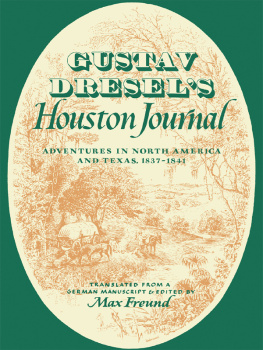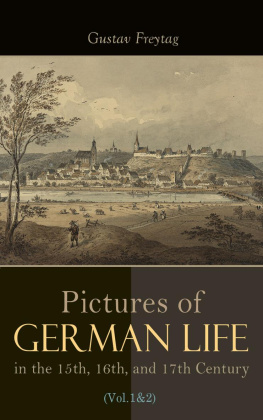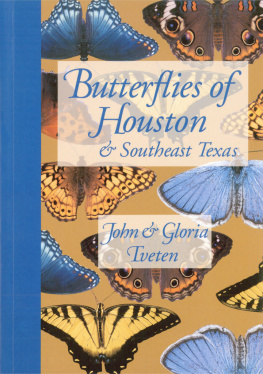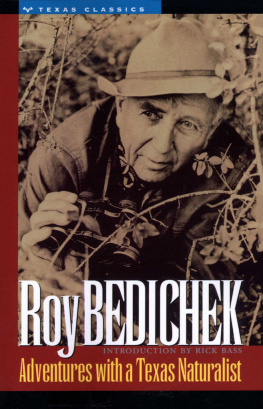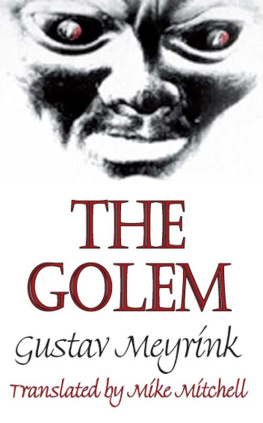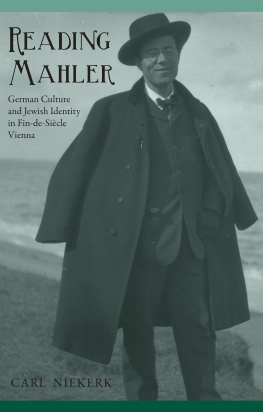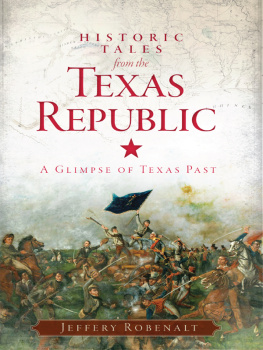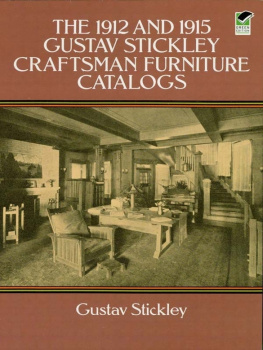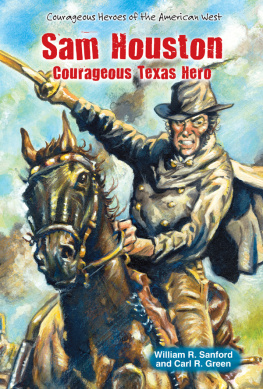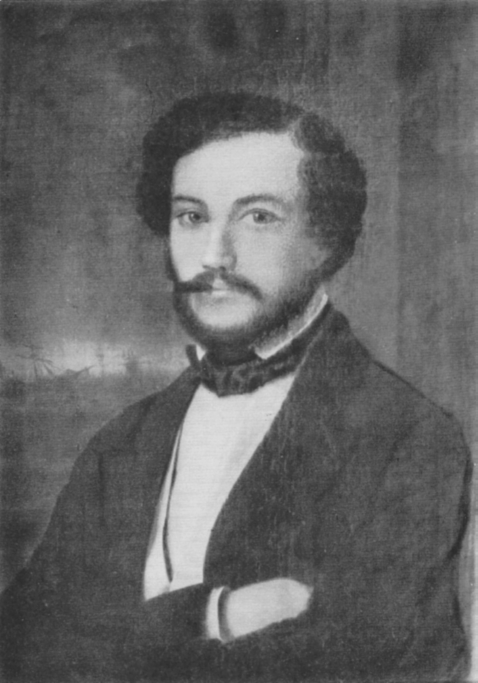Photograph of an oil painting owned by a grandnephew, Dr. Rudolph Dresel, of San Francisco, California
GUSTAV DRESELS
HOUSTON JOURNAL
Adventures in North America and Texas
18371841
Translated from a German Manuscript and Edited by
MAX FREUND
Whoever intends to write of life
Must first have partaken in human strife
AUSTIN : 1954
UNIVERSITY OF TEXAS PRESS
UNIVERSITY OF TEXAS PRESS
Library of Congress Catalog Card No. 5410042
Library ebook ISBN: 978-0-292-76694-5
Individual ebook ISBN: 978-0-292-78939-5
DOI: 10.7560/732575
Copyright 1954 by Max Freund
REGINE
meiner lieben Frau und getreuen Mitarbeiterin sei dieses Buch von Herzen zugeeignet
DER BERSETZER UND HERAUSGEBER
IN THE PREPARATION of this book much benefit was derived from a large number of publications and manuscripts, many of which have been quoted in the Introduction and Notes.
For their active personal interest, suggestions, or assistance, the editor feels indebted to a considerable number of friends, to the staffs of various libraries and archives, and to members of the Houston Philosophical Society and the Harris County Historical Society, whom he had the privilege of addressing on the subject of this book.
He owes particular debts of gratitude to: Dr. R. L. Biesele, Mr. Herbert Fletcher, Dr. L. W. Kemp, Rev. F. W. Kern, Dr. Louis Kestenberg, Mrs. I. B. McFarland, Mr. Oswald Mueller, Dr. Andrew Forest Muir, the late Mrs. Selma Metzenthin Raunick, Miss Martha Schnitzer, Mr. E. W. Winkler;
Miss Louisa L. Dresel, of Cambridge, Massachusetts, daughter of Gustav Dresels brother Otto, and guardian of the family history;
Dr. Rudolph Dresel, of San Francisco, California, who sent the photograph of his great-uncles portrait that serves as frontispiece of this book ;
Mr. A. J. Luckett, of New Braunfels, who, when County Attorney, directed the editor to the probate records of Gustav Dresels estate ;
The late Mr. G. F. Oheim and his son, Mr. Frederic Oheim, editors of the Neu-Braunfelser Zeitung, which has been reprinting many informative documents of pioneer times.
This volume was practically ready for printing in 1939. Publication was postponed owing to the ensuing outbreak of war and attendant circumstances. Although dwindling eyesight has hampered the editor in recent years, the unfailing assistance and collaboration of his wife has enabled him to carry through a large amount of additional research and a thorough revision of the whole book.
MAX FREUND
Professor Emeritus in the Rice Institute
Houston, Texas
February 1, 1954
Contents
Illustrations
IN THE YEAR 1838 a young businessman of a good family in Germany arrived in the brand-new city of Houston. His arrival followed by a month or two that of another young businessman, from Massachusetts, who had landed in the same manner at the foot of Main Street in what is now the largest city in the Southwest. The latter, William Marsh Rice, whose name is borne by the well-known Rice Hotel in Houston as well as by Rice Institute, which he founded, fairly represents the predominant Anglo-American element of the population. The former, Gustav Dresel, was a characteristic member of that German element which added such a strong and distinctive note to the cosmopolitan polyphony of Houston life during the nineteenth century.
The young German spent over two years in Houston and its vicinity before returning to his native country. He became passionately attached to Texas, and to Houston in particular. Vividly and favorably impressed by the New World as he was, he wrote a most interesting and sympathetic account of the life in Houston and in its neighborhood under the Republic of Texas. This diary is of a nature to engage the attention of all Texans, and more particularly of all Houstonians, for a more glamorous and informative story set in the earliest period of their city has not come to light. Its appeal, however, is by no means only local. Here is an important document of general interest, illustrating the social, economic, and political conditions in the Texas Republic.
These are no doubt the reasons why it was largely overlooked and became known to very few of those interested in the history of Texas and the city of Houston.
Another manuscript of Dresels Journal was purchased in 1931 by the Library of Congress from the bookseller Ferdinand Schningh of Osnabrck, Germany. Schningh ascertained, so he reports, that several copies of the Journal had been made for relatives of Gustav Dresel and that the manuscript now in possession of the Library of Congress hails from Geisenheim and is supposed to be the original. A close scrutiny of the Goebel print reveals its inferiority as compared with the Library of Congress manuscript. It omits, presumably by oversight, two important passages, one of about two pages and the other of about ten pages. There are a number of smaller omissions, as well as hundreds of deviations and inaccuracies. The present translation is therefore based on the manuscript of the Library of Congress. Only occasionally does it substitute a reading, which seems preferable, from Goebels version.
The Library of Congress manuscript is beautifully and regularly written in German script. On a label glued to one of the first pages, it is described as a diary written in ink by the author himself: Tagebuch in eigenhndiger Niederschrift (in Tinte). A comparison with an original German letter of Gustav Dresel (kindly lent by the late Ottmar Guenther of New Braunfels, Texas) convinced the present editor that the title page was indeed most probably written by the author himself. He is inclined to think, however, that, apart from the title page, the manuscript is not the original but a fair copy of it, written perhaps by a member of the Dresel household in Geisenheim or else by a professional copyist. The original itself, in which we should expect to find at least a few stylistic emendations from the pen of Hoffmann von Fallersleben (see p. xx) has not come to light and was perhaps destroyed or lost.
The manuscript volume contains ninety numbered folios of four quarto pages each. Three hundred and fifty-five of the pages are covered with writing. The binding is in dark-green cloth, the back and the corners in red leather. The volume bears an outside inscription in gilt letters: Gustav Dresel: Erlebnisse in Nordamerika und Texas, 183741. This handsome volume has apparently been much used, without, however, having appreciably suffered thereby. The line Carl Dresel-Tenge, which is embossed in big Roman gilt letters on one of the first leaves, no doubt denotes the onetime owner, i.e., Dresels eldest brother and/or his wife Elise, who was a daughter of the wealthy landed proprietor Tenge of Barkhausen, near Bielefeld. The label attached to the Library of Congress manuscript describes the volume as having an American half-calf binding of the time. Provided this description is correct and refers to the time of the origin of the manuscript, it may be considered likely that it was Gustav Dresels own copy and passed into Carl Dresel-Tenges possession after Gustavs death.
The writer of the Texas diary was a native Rhinelander, like the great German-American statesman Carl Schurz. Gustav was born in the little town of Geisenheim on the Rhine on January 26, 1818. His father, Johann Dietrich Dresel, who had a flourishing wine business, became a member of the Liberal party in the Chamber of Deputies in the Duchy of Nassau, to which Geisenheim belonged. His spacious home often provided hospitality and shelter to poets and politicians of the Liberal persuasion. Among others, the poet Ferdinand Freiligrath was a frequent visitor, and it is possible that at some time or other he introduced to the Dresel family his American poet friend Longfellow in whose Golden Legend we read:

